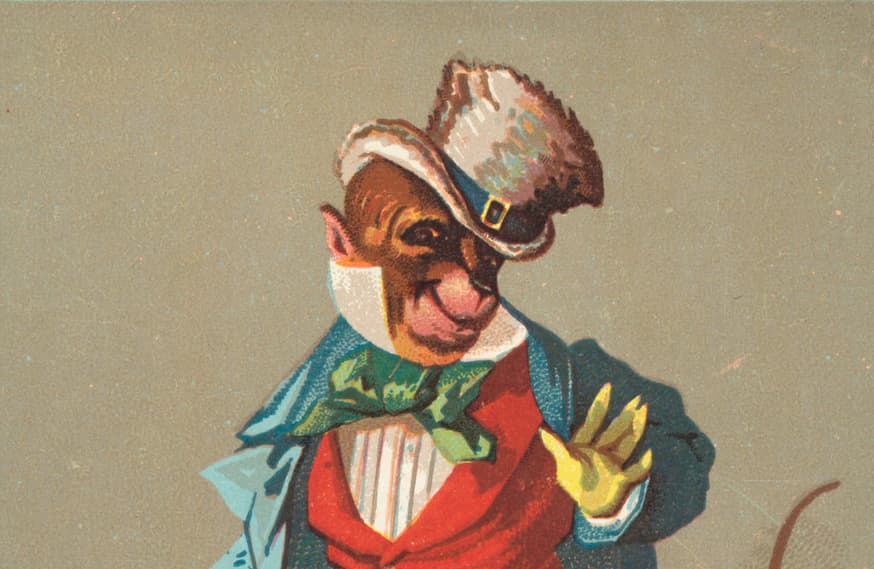Poem of the Day: ‘Animal Fair’
The recasting by word-of-mouth tradition has made most nursery rhymes anonymous and even authorless.

Sometimes “by Anonymous” means clearly composed by a particular person whom we happen not to know. And sometimes “by Anonymous” means cast up by the tradition, the result of additions, fixes, and sandings-down in the retellings and reperformings down through the years. Most nursery rhymes are “by Anonymous” in this second sense: Even where we can uncover something that looks like an origin, the recasting by word-of-mouth tradition has made them anonymous and even authorless.
Many children’s verses and nonsense songs fit this pattern as well — “Animal Fair,” for example: today’s Poem of the Day for one of our Lighter Wednesdays here in The New York Sun. This version is from the first-known printing, in the Chicago Record newspaper in 1898, recording the lyrics to a nonsense song popular with American troops in Cuba during the Spanish-American War.
That’s unlikely to be the ur-source, but it at least gives us a starting point to measure the changes wrought by campfire renditions, prissy anthology editors, and performers adding a comic moment to their sets. “The little raccoon” has typically become “the big baboon.” “The monkey he got drunk” was judged unsuitable for the young and so would often be changed to “The monkey fell out of his bunk” or some such.
The joke of the unstressed last syllable was sometimes missed, and so “what became of the monkey” is smoothed off to “what became of the monk.” The trimeter and tetrameter lines — two four-line stanzas of 3-3-4-3 stresses — beg to sung, and from its American beginnings the poem has never left the children’s canon.
Animal Fair
by Anonymous
I went to the animal fair,
The birds and the beasts were there;
The little raccoon by the light of the moon
Was combing his auburn hair.
The monkey he got drunk,
And sat on the elephant’s trunk,
The elephant sneezed and went down on his knees
And what became of the monkey?
___________________________________________
With “Poem of the Day,” The New York Sun offers a daily portion of verse selected by Joseph Bottum with the help of the North Carolina poet Sally Thomas, the Sun’s associate poetry editor. Tied to the day, or the season, or just individual taste, the poems are drawn from the deep traditions of English verse: the great work of the past and the living poets who keep those traditions alive. The goal is always to show that poetry can still serve as a delight to the ear, an instruction to the mind, and a tonic for the soul.
